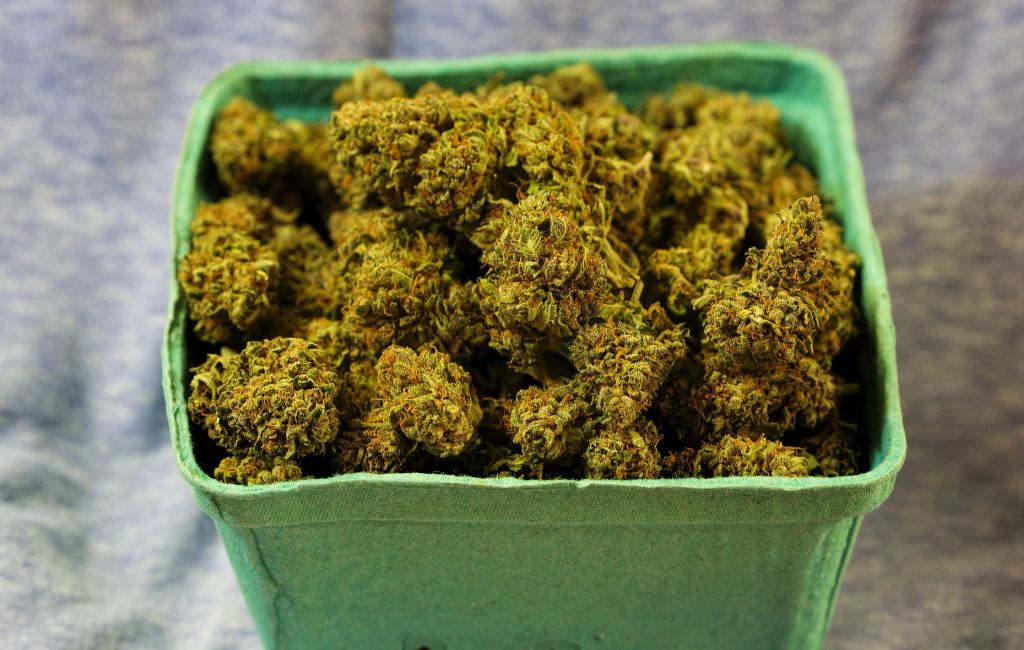In recent years, the interest in cannabis and its derivatives has surged, with many seeking natural alternatives for health and wellness. Among the various compounds found in cannabis, THCa (tetrahydrocannabinolic acid) has gained attention for its potential therapeutic benefits like here https://indacloud.co/product/vanilla-berry-pie-thca-flower/. Unlike THC, THCa is non-psychoactive, making it an appealing option for those looking to avoid the high associated with cannabis use.
Understanding THCa
THCa is a cannabinoid found in raw and live cannabis plants. It is the precursor to THC, the compound responsible for the psychoactive effects of cannabis. When cannabis is heated through smoking, vaping, or cooking, THCa converts to THC. This process, known as decarboxylation, is what activates the psychoactive properties of cannabis.
In its raw form, THCa offers a range of potential health benefits without the intoxicating effects. This makes it an attractive option for individuals seeking therapeutic effects without altering their mental state.
Potential Health Benefits of THCa
Research into the benefits of THCa is still in its early stages, but preliminary studies and anecdotal evidence suggest several potential health benefits:
- Anti-inflammatory Properties: THCa may help reduce inflammation, making it a potential option for those with conditions like arthritis or inflammatory bowel disease.
- Neuroprotective Effects: Some studies suggest that THCa may have neuroprotective properties, which could be beneficial for neurodegenerative diseases such as Alzheimer’s and Parkinson’s.
- Anti-emetic Effects: THCa may help reduce nausea and vomiting, which can be particularly beneficial for patients undergoing chemotherapy.
- Antioxidant Properties: As an antioxidant, THCa may help protect cells from damage caused by free radicals.
Popular THCa Flower Strains
Several cannabis strains are known for their high THCa content. These strains are often sought after for their potential therapeutic benefits. Here are a few popular THCa-rich strains:
- ACDC: Known for its high CBD and THCa content, ACDC is often used for pain relief and anxiety reduction.
- Harlequin: This strain is popular for its balanced ratio of CBD to THCa, making it a favorite among those seeking relief from pain and stress.
- Charlotte’s Web: Originally developed for its high CBD content, this strain also contains significant levels of THCa, making it a popular choice for those with epilepsy and other seizure disorders.
Case Studies and Research
While comprehensive clinical trials are still needed, several case studies and preliminary research have highlighted the potential of THCa as a natural remedy:
A study published in the Journal of Neuroimmune Pharmacology explored the anti-inflammatory effects of THCa in animal models. The results indicated a significant reduction in inflammation, suggesting potential applications for inflammatory conditions.
Another study conducted by researchers at the University of Guelph examined the neuroprotective properties of THCa. The findings suggested that THCa could help protect neurons from oxidative stress, offering potential benefits for neurodegenerative diseases.
How to Use THCa Flower Strains
For those interested in exploring the benefits of THCa, there are several ways to incorporate it into a wellness routine:
- Raw Consumption: Consuming raw cannabis leaves or flowers in smoothies or salads can provide THCa without the psychoactive effects.
- Tinctures and Oils: THCa tinctures and oils offer a convenient way to consume THCa, allowing for precise dosing.
- Topicals: THCa-infused creams and balms can be applied directly to the skin for localized relief from pain and inflammation.
Legal Considerations
The legal status of THCa varies by region, as it is often classified under the same regulations as THC. It’s important for consumers to be aware of local laws and regulations regarding cannabis and its derivatives.
Conclusion
THCa flower strains offer a promising natural remedy for a variety of health concerns. With potential benefits ranging from anti-inflammatory and neuroprotective effects to anti-emetic and antioxidant properties, THCa presents an appealing option for those seeking non-psychoactive therapeutic alternatives. As research continues to evolve, the understanding of THCa’s full potential will likely expand, offering new insights into its role in health and wellness.
